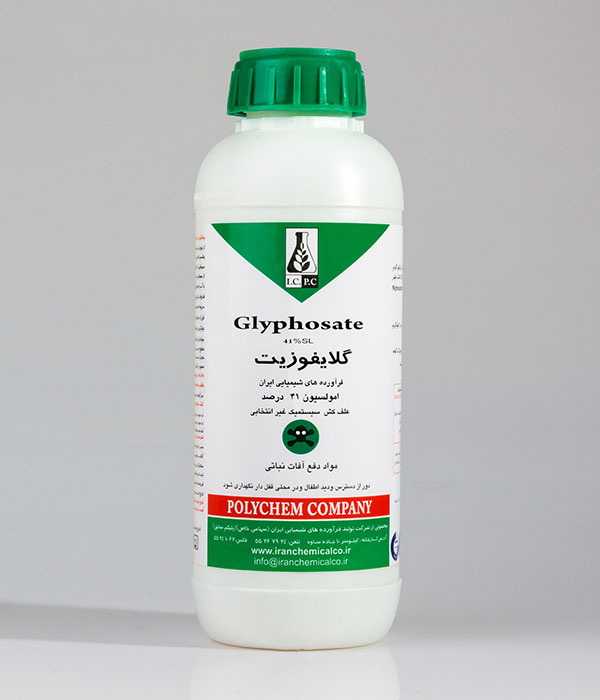Glyphosate 41% SL
Action:
Systemic& Non-selective Herbicide
Mode of Action:
Glyphosate is a Glycine, non-selective systemic herbicide. It is useful on essentially all annual and perennial plants including grasses, sedges, broad-leaved weeds and woody plants. It can be used on non-cropland and among a great variety of crops. It serves as a plant growth regulator. The most common uses include control of broadleaf weeds and grasses in: hay/pasture, soybeans, field corn; ornamentals, lawns, turf, forest plantings, greenhouses, rights-of-way.
Chemical group:
Glycine derivative
Toxicological information:
Acute oral LD 50 for rats =5000 mg/kg
Biochemistry:
Inhibits 5–enolpyruvylshikimate-3-ophosphate synthase (EPSPS) an enzyme of the aromatic acid biosynthetic pathway. This prevents synthesis of essential aromatic amino acids needed for protein biosynthesis.
Uses:
Use it for controlling annual and perennial grasses and broad-leaf weeds in fruit trees, grapes, non-crop lands and industrial installations. It is used at 6 L/ha for annual weeds and 10 L /ha for permanent weeds.
| Product Name | Weed | Dosage | Time |
| Fruit trees | Annual and perennial weeds | 4 to 12 lit per hectare | At flowering stage of weeds |
| sugarcane | Annual and perennial weeds | 1 to 2% | After weed growth |



